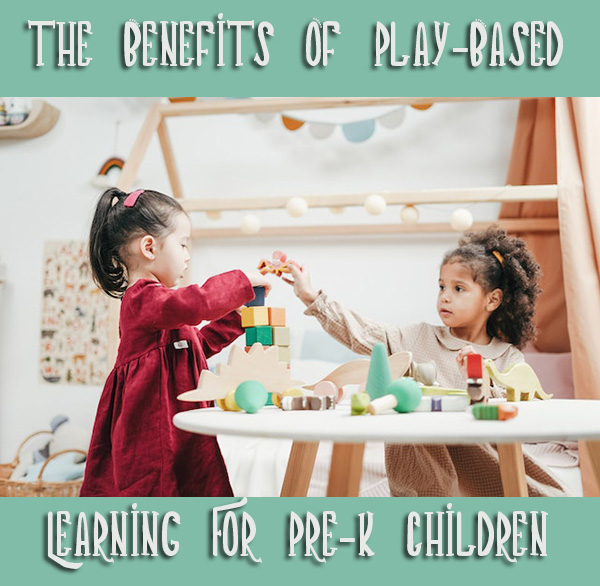As a parent of a pre-k child, you may be wondering how you can best support your child’s learning and development during this crucial stage. While there are many approaches to early childhood education, one approach that has gained increasing popularity in recent years is play-based learning.
Play-based learning is an approach to education that emphasizes the importance of play in young children’s development. Rather than focusing solely on academic skills such as reading and writing, play-based learning recognizes that young children learn best through hands-on exploration, experimentation, and play. For parents, finding a daycare that emphasizes play based learning can be highly beneficial for the development of their child.
Here are some of the benefits of play-based learning for pre-k children:
- Encourages creativity and imagination
Play-based learning encourages children to use their creativity and imagination to explore the world around them. Whether they’re building with blocks, pretending to be superheroes, or painting with their fingers, children are free to express themselves in a variety of ways that allow them to develop their own unique interests and talents.
- Develops social and emotional skills
Play-based learning provides children with opportunities to develop social and emotional skills such as cooperation, communication, empathy, and self-regulation. Through play, children learn to share, take turns, and negotiate with others, which are essential skills for building positive relationships with peers and adults.
- Enhances cognitive development
Play-based learning also supports cognitive development by providing children with opportunities to problem-solve, think critically, and engage in complex thinking. Whether they’re sorting and classifying objects, creating patterns, or engaging in open-ended exploration, children are challenged to use their minds in new and creative ways that foster the development of important cognitive skills.
- Fosters a love of learning
Perhaps most importantly, play-based learning fosters a love of learning that can last a lifetime. By providing children with opportunities to explore and discover the world around them in a fun and engaging way, play-based learning helps children develop a natural curiosity and enthusiasm for learning that can carry over into other areas of their lives.
- Supports physical development
Play-based learning also supports the physical development of pre-k children. Through play, children have opportunities to develop their gross and fine motor skills, coordination, balance, and spatial awareness. Activities such as running, jumping, climbing, and playing with balls or other objects can help children build strength, improve their coordination and balance, and develop important spatial and body awareness skills that are essential for future physical activities and sports. Additionally, fine motor skills such as cutting, drawing, and manipulating small objects help children develop the dexterity and hand-eye coordination necessary for tasks such as writing, using utensils, and dressing themselves independently. Overall, play-based learning provides pre-k children with the opportunity to engage in physical activities that are fun and engaging, while also supporting their physical development and laying the foundation for a healthy and active lifestyle.
- Encourages a love for nature and the environment
Play-based learning can also encourage pre-k children to develop a love for nature and the environment. Activities such as exploring nature, gardening, and caring for animals can help children connect with the natural world and develop an appreciation for its beauty and diversity. By engaging in hands-on activities that involve the environment, children can learn about the importance of conservation, sustainability, and environmental responsibility. In addition, outdoor play provides children with the opportunity to get fresh air, exercise, and Vitamin D from the sun, which are all important for physical and mental health. By fostering a love for nature and the environment through play-based learning, pre-k children can develop a lifelong commitment to preserving the planet and living in harmony with the natural world.
In conclusion, play-based learning is a highly effective approach to early childhood education that provides pre-k children with a range of benefits, from developing social and emotional skills to enhancing cognitive development and fostering a love of learning. As a parent, you can support your child’s learning by providing opportunities for play-based learning at home, such as through imaginative play, building activities, and open-ended exploration. By doing so, you can help your child develop a strong foundation for future academic and personal success.






Speak Your Mind